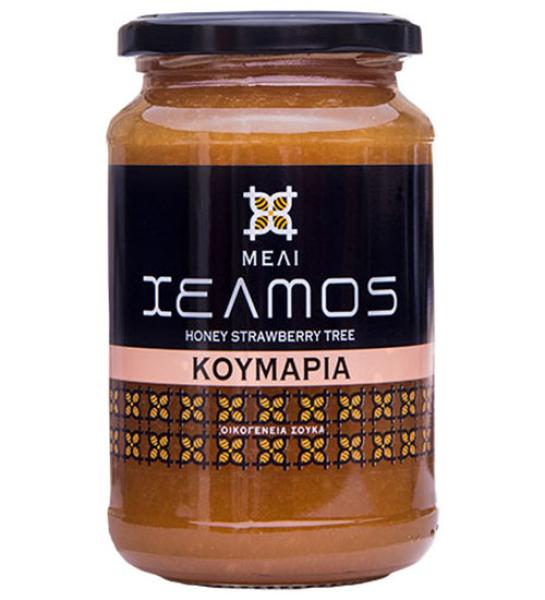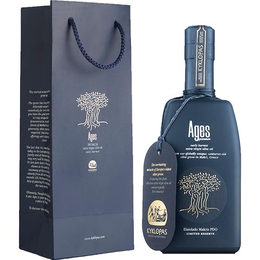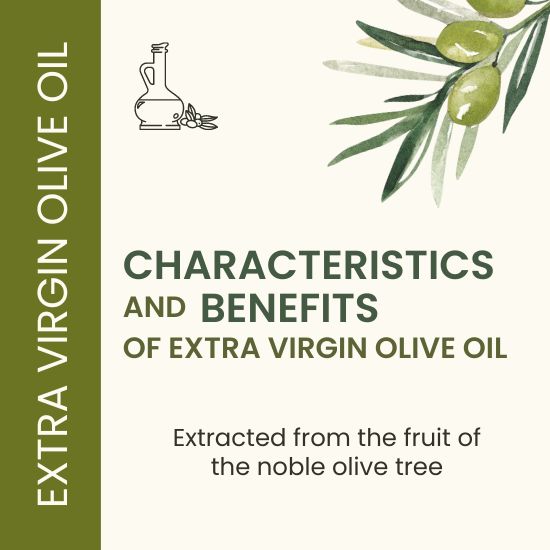Arbutus honey
Arbutus honey (strawberry-tree honey) is produced by the Soukas family on the slopes of Achaia. The flowering of the coumarous begins in November, while flowers give pollen and nectar until late spring.
Taste: A full taste with aromatic notes of bitter caramel.
Nutritional value: It is rich in trace elements and vitamins and is one of the best choices for stimulating the body. Natural antibiotics (contained to a large extent) shield the body from various diseases. It is also used as a diuretic and antiseptic in the urinary tract, as well as, in cases of mild bronchial infections. The calories contained are less than other kinds of honey, because of the low percentage of glucose and fructose. As a result, arbutus honey is recommended in diet cases and Diabetics Type 2.
Crystallization: It crystallizes relatively quickly and gets a buttery texture.
Finally, according to an analysis by the Bremen Beekeeping Institute and the Kraft company in Munich, it contains:
0.0% sucrose (common sugar)
36.1% fructose
28.9% glucose
1.7% maltose
19.5% humidity
Its pH is around 4.5.
In our country, unfortunately, the arbutus honey and chestnut honey are little known. However, they are known for their beneficial properties in the markets of Central Europe, Russia, and the Arab countries.
Main features
Specifications
Dimensions
The Helmos Beekeeping
Soukas family produces honey for more than half a century.
Grandpa Nikolaos placed the first beehive at his beloved mountain, Helmos .
He conveyed the same love to his son George, founder of "HELMOS BEEKEEPING" in Ano Lousos, Kalavrita.
The third generation continues the family’s tradition and produces 15 varieties of honey, Bio pollen, royal jelly, honey products, sesame bars and healing beeswax cream.
The importance of honey over the years
As it is said that honey never spoils and is immortal, it was the food of gods in antiquity. According to mythology, the Bee was the nurturer of the god Zeus, father of the gods, and honey was the food of the Olympian gods.
In Homer's Odyssey, honey is also called "melikraton"(meli-=honey), i.e. a mixture of honey and milk, which they drank as a fine drink.
Moreover, it is stated that honey came to Greece from Ancient Egypt. In fact, in the well-known city of Minoan civilization in Crete, called Phaistos, it is said that ceramic beehives from 3400 BC were found, while in Knossos, gold jewellery depicting two bees holding a honeycomb.
In Sparta, it is said that, while teenagers were trained as soldiers, they were transported to the mountains for a month, being fed exclusively with honey (honeymoon).
Systematic beekeeping is reported to have been applied in Greece since the 15th century AC.
Even today, honey is considered a nutritional treasure and is known, in addition to its full flavour, for its antibacterial and antifungal properties. It is said that honey enhances memory, is one of the best natural antitussives, helps treat dry skin, helps you sleep better, and in general, that the combination of all of its nutrients, contributes positively to the human body.































